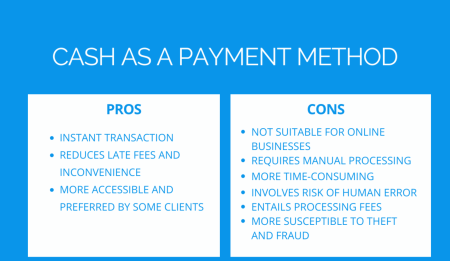Financial markets offer many opportunities to invest and grow financial portfolios by trading various assets and instruments. The CFD (contracts for differences) and Shares (stock) markets are popular among traders for various reasons, such as high liquidity and accessibility. Are you looking to break into finance trading? This article guides you in choosing the right market to trade based on several important factors. But first, let’s find out the essential differences between trading CFD and shares.
Although the principles and strategies of financial trading are the same across all markets, there are essential differences that trades should know, as they influence how they trade. For instance, CFD covers markets such as currency, futures, and commodities, while the shares market deals only with company shares and exchange-traded funds.
One of the main differences between the two is that CFD trading is leveraged while share trading isn’t. Leverage is an essential concept that traders must carefully consider for its potential to increase the profit or loss margins. Another critical distinction between both markets is that CFDs are considered trading products while shares are considered investment products.
Factors That Determine Trader’s Choice of Market
As a beginner, you might be unfamiliar with how each financial market works, but choosing to trade any market requires careful consideration of important factors.
Trading Capital
The amount of capital you have greatly impacts how you trade. Traders with significant capital, for instance, can quickly enter swing trades that last for many months. Consider CFD trading if you start with a small amount of capital (less than $1000).
Share trading is a long-term investment where you buy shares and wait for prices to rise. This is better for traders with more experience and more trading capital. There is also no option of going short on share trading, whereas CFDs allow long and short trades.
Trading Style

Since share trading involves buying the underlying stock and waiting for the price increase, most share traders are natural swing traders and can stay for many months or years to become profitable. Many factors affect the stock market, but it is less volatile than CFD trading.
But CFD trading allows you to do day trading, scalping, or ride market trends. You can also do swing trading in CFDs if you prefer. Learn how to invest and choose your trading style from early on to determine what markets you’d like to trade. You can explore your strategies on demo trading to understand how your trading style works in each market.
Trading Hours
Trading hours are active hours when stock markets and trading sessions are open. For example, the New York Stock Exchange (NYSE) and NASDAQ are available from 9:30 am ET to 4:00 pm ET Monday – Friday. They typically observe certain holidays during which they are officially closed. In the forex market, the main sessions (London, New York, Tokyo, and Sydney) also open at specific times of the day, often overlapping.
Trading hours are essential for market liquidity and profitable trading. Your strategy also depends on active hours to work well. You should note the active hours of CFD and share trading and determine the hours that work best for you.
Location and Regulation
Your location is also essential when considering a market to trade. While certain shares may be limited to a geographical or geopolitical location, the CFD market is often not limited and accepts traders globally. If you live in a country or region with limited access to shares trading, trading CFDs might be your better option to make money from financial markets.
This is also closely linked to regulations on trading. Ensure you know what regulations guide financial trading in your country of residence and understand what markets you can explore. Some countries permit share trading but do not allow derivatives.
Things To Do as a New Trader
Here are six things to do as a new trader in the CFD and share markets.
1. Educate Yourself
Learning to trade is the first and most important part of trading. Learn the basics and focus on one strategy until you master it. Keep abreast of market events and learn how to trade in such cases.
2. Keep Emotions in Check
Successful traders learn to keep their emotions away from trading. Never chase a trade, but allow the market to play out until you get the proper setup based on your strategy.
3. Choose an Excellent Broker
Brokers provide access to CFD and share markets and are crucial to your success as a trader. Choose a broker licensed in your country that provides a modern trading platform, excellent conditions, and quality customer support.
4. Use a Trading Plan
A trading plan defines rules and guides to help you trade effectively. When you trade with a strategy, you can easily adjust to market conditions and maintain your pace without issues.
5. Manage Your Capital Wisely
Managing your trading capital to maximize profits and reduce losses is a strategy that will help you stay profitable as a trader. Learn how to calculate your lot sizes, entries and exits, and risk-to-reward ratio for each trade.
6. Think Long-Term
Trading is a long-term game, so treat it as such. Set targets for each month, quarter, and year to make money at once. It is okay to have 10-year trading plans that you can work towards. You should also know when to take breaks from trading to refresh your mind.
These tips will help you maintain your trading performance at an optimal level to reach your goals.
Choosing the Right Path Forward As a Beginner
Whether you trade CFDs or shares, your knowledge of how the market works will significantly impact your profitability. CFD trading may be better if you prefer day trading over holding a position for many months. Ensure you choose a supportive broker and use their services to start trading. If you’re ready, you can start trading as a beginner and build your trading career through CFD or share trading.














